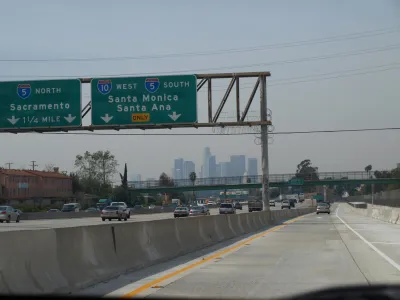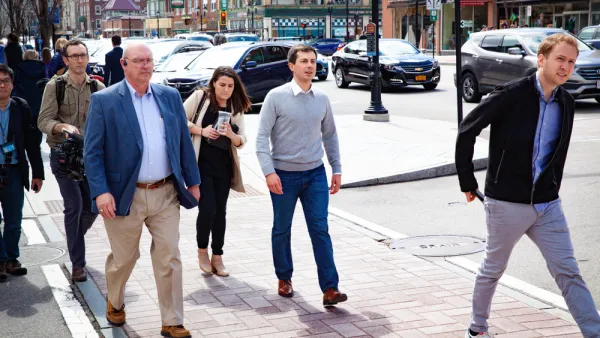The U.S. Department of Transportation nominee acknowledged the impact the interstate highway system has had on communities of color and vowed to mitigate the damage.

In a tweet following his statement accepting President-elect Biden's nomination for Secretary of Transportation, Pete Buttigieg promised to right the wrongs of the past, acknowledging that "Black and brown neighborhoods have been disproportionately divided by highway projects or left isolated by the lack of adequate transit." Buttigieg signaled that the Biden administration will seek to undo the damage done by prior federal policies and focus new efforts on ensuring more equitable outcomes.
The interstate highway system, one of the federal government's largest and most far-reaching transportation projects, has shaped the fate of cities with a heavy-handed, top-down approach that has isolated and displaced communities, impeded economic growth, and created public health crises in adjacent neighborhoods. Dismantling freeways is just one piece of the puzzle in undoing the damage of downtown expressways. New programs must work to restore affected communities without creating more burdens for Black and brown communities, writes Aaron Short. To achieve their goals and begin to address the decades-long structural effects of highway construction, the new administration will have to drastically shift federal funding for transportation infrastructure and ensure future policies put equity considerations first.
Urban planner Chris Sensenig, cited by Short in the source article, is optimistic that Buttigieg will deliver on his promises: "If the infrastructure bill is crafted to advance more than just the political interests of the few, we would hope that it would lead to investing in projects that further social and environmental justice issues."
FULL STORY: Nominee Buttigieg Vows To Dismantle ‘Racist’ Freeways

Analysis: Cybertruck Fatality Rate Far Exceeds That of Ford Pinto
The Tesla Cybertruck was recalled seven times last year.

National Parks Layoffs Will Cause Communities to Lose Billions
Thousands of essential park workers were laid off this week, just before the busy spring break season.

Retro-silient?: America’s First “Eco-burb,” The Woodlands Turns 50
A master-planned community north of Houston offers lessons on green infrastructure and resilient design, but falls short of its founder’s lofty affordability and walkability goals.

Test News Post 1
This is a summary

Analysis: Cybertruck Fatality Rate Far Exceeds That of Ford Pinto
The Tesla Cybertruck was recalled seven times last year.

Test News Headline 46
Test for the image on the front page.
Urban Design for Planners 1: Software Tools
This six-course series explores essential urban design concepts using open source software and equips planners with the tools they need to participate fully in the urban design process.
Planning for Universal Design
Learn the tools for implementing Universal Design in planning regulations.
EMC Planning Group, Inc.
Planetizen
Planetizen
Mpact (formerly Rail~Volution)
Great Falls Development Authority, Inc.
HUDs Office of Policy Development and Research
NYU Wagner Graduate School of Public Service



























